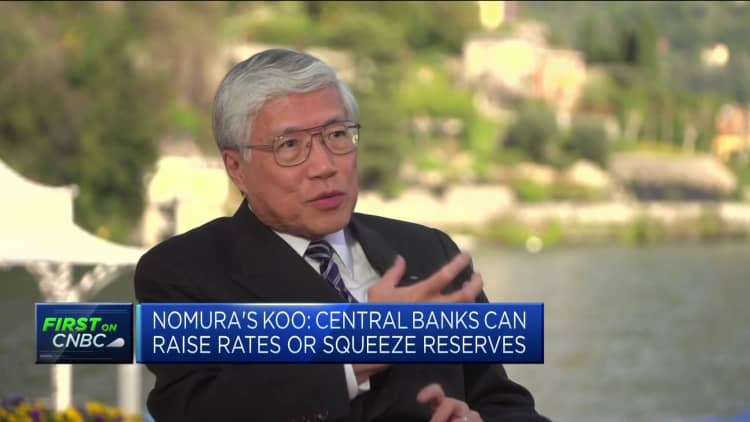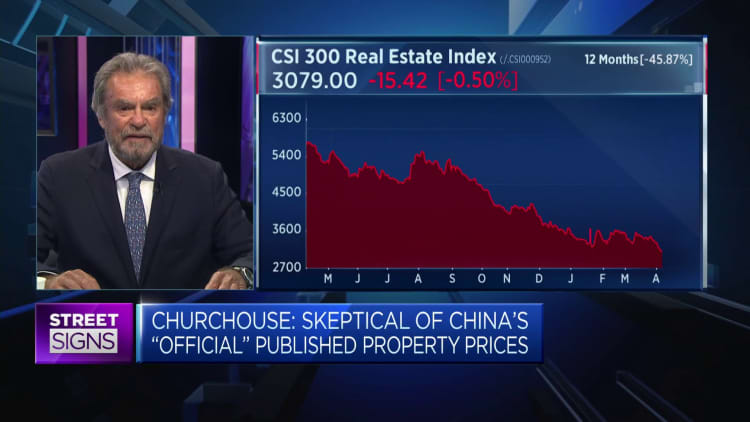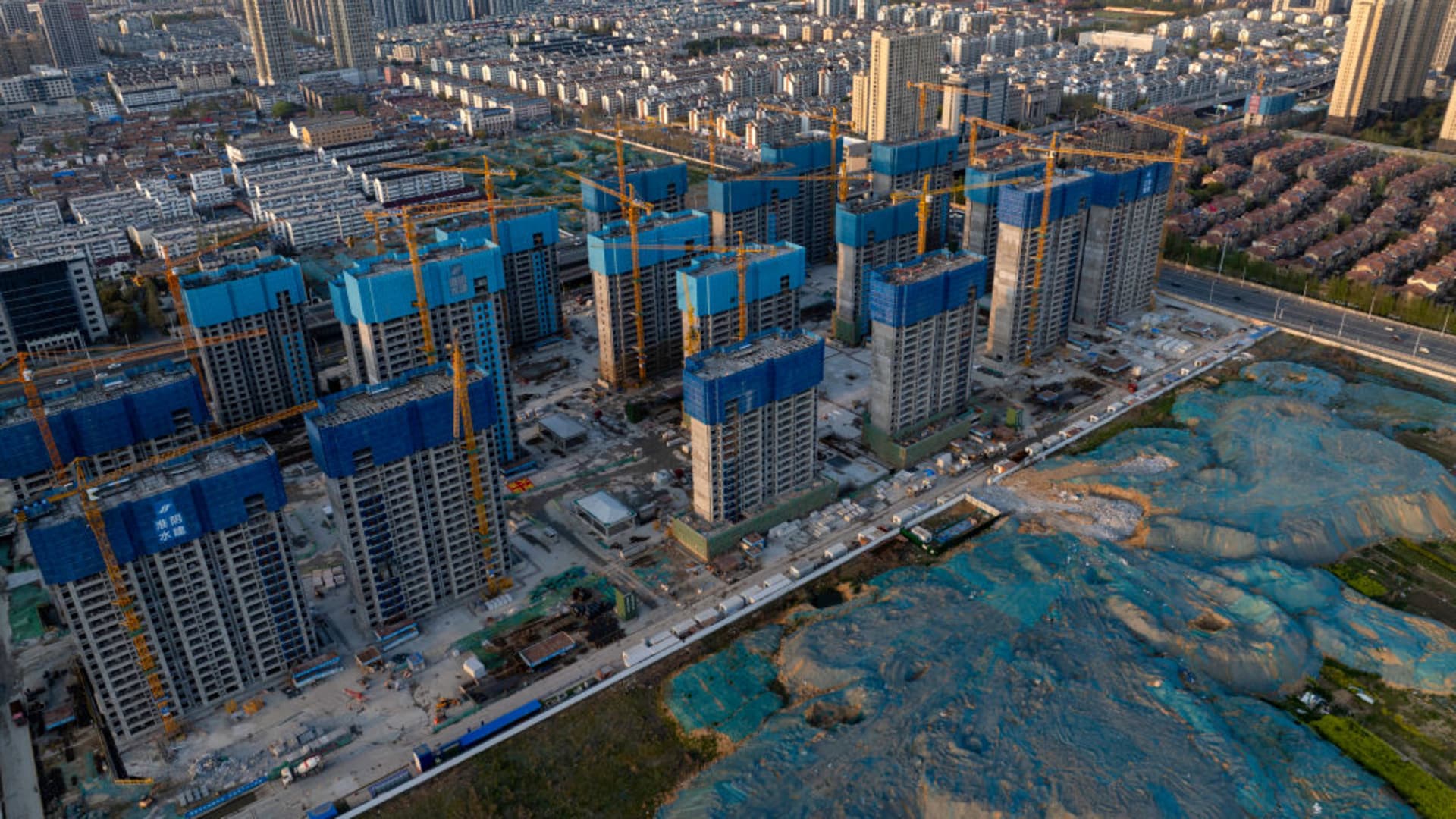Pictured here is a real estate project under construction in Huai ‘an city, Jiangsu province, China, on April 8, 2024.
Future Publishing | Future Publishing | Getty Images
BEIJING — China needs to convince people that home prices are on their way up in order for economic activity to pick up, Richard Koo, chief economist at Nomura Research Institute, told CNBC’s Steve Sedgwick last week.
Business and consumer appetite for new loans have had a tepid start to the year, while home prices dropped at a steeper pace in January than in February, according to Goldman Sachs’ analysis.
In other words, as Koo warned last year, China may be entering a “balance sheet recession,” similar to what Japan experienced during its economic slump.
“For them to come back and borrow money, we need a narrative that says, okay, this is the bottom of the prices, the prices will start going up from this point onwards,” Koo said.
But it’s not clear whether prices have reached an actual bottom yet. Koo and other analysts have pointed out that in China’s policy-driven economy, house prices have not fallen as much as expected given declines in other aspects of the property market.

Chinese officials have said that real estate remains in a period of “adjustment.” The country has also been emphasizing new growth drivers such as manufacturing and new energy vehicles.
Real estate and related sectors have accounted for at least one-fifth of China’s economy, depending on analyst estimates. The property market began its latest slump after Beijing cracked down on developers’ high reliance on debt in 2020.
That coincided with the shock from the Covid-19 pandemic.
It also comes as China’s population has started to shrink, Koo pointed out — a big difference with Japan, whose population didn’t start to fall until 2009, he said.
“That makes this narrative, that the prices have fallen enough, you should go out and borrow and buy houses, even more difficult to justify because [the] population is now shrinking,” Koo said.
Lessons from history
China’s economy officially grew by 5.2% in 2023, the first year since the end of Covid-19 controls. Beijing has set a target of around 5% growth for 2024.
However, many analysts have said such a goal is ambitious without more stimulus.
Chinese authorities have been reluctant to embark on large-scale support for the economy. Koo said an underlying reason is that Beijing views its prior stimulus program as a mistake.
About 15 years ago, in the wake of the global financial crisis, China launched a 4 trillion yuan ($563.38 billion) stimulus package that was initially met with skepticism — and a 70% drop in Chinese stock prices, Koo said.
“It was heading toward balance sheet recession, almost,” he said. “One year later, China had 12% growth.”

But Beijing kept up its stimulus package even after the country had achieved rapid growth, which led to an overheating of growth and speculation, on top of corruption, Koo said. “That’s one of the reasons why this government, Mr. Xi Jinping, is still reluctant to put [out] a large package because so many people think the previous one was a failure.”
Looking ahead, Koo said China should stimulate its economy to avoid a balance sheet recession, and that it should cut that support once growth reaches 12%. “Once the borrow[ing] is coming back, then you can cut, but not before.”







